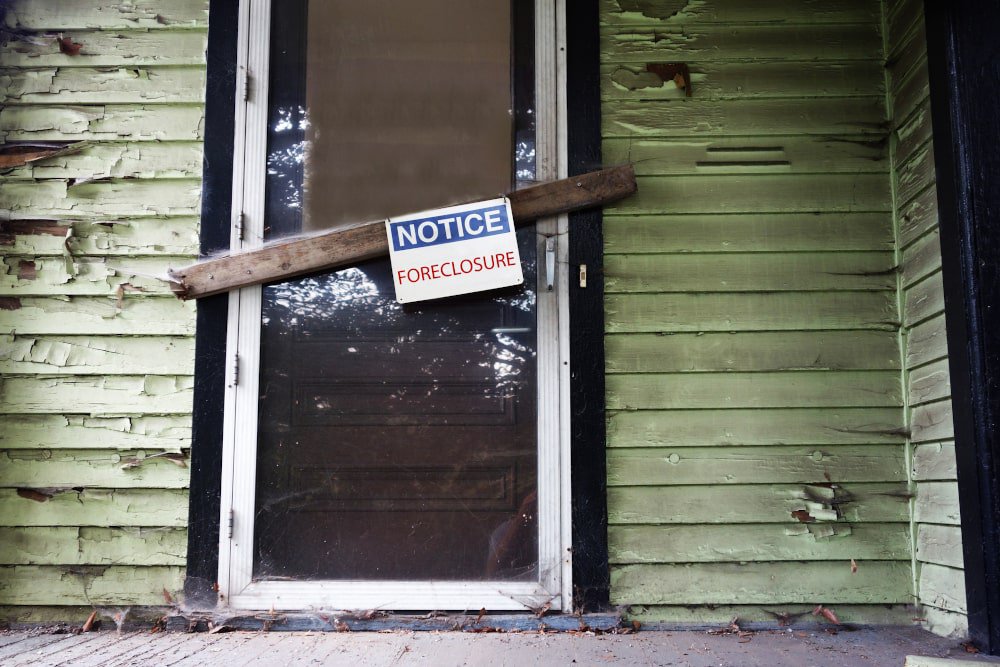Buying a Foreclosed Home or Power of Sale Property: Pros, Cons & Expert Guide

For many Canadians, real estate continues to be a key strategy for building long-term financial security, especially amid rising home prices and tighter housing supply. As market conditions shift, more buyers are exploring distressed properties, such as power of sale or foreclosed homes. These properties can offer compelling opportunities but also come with legal, financial, and structural risks.
Any real estate purchase requires informed decision-making, but distressed properties demand extra caution. Buyers must go through unfamiliar procedures, financing challenges, and limited property protections.
This guide explains the differences between power of sale and foreclosure, the benefits and risks, and how homeowners and investors succeed.
What exactly is a power of sale home and how does it differ from a foreclosure?
Under Canadian law, a power of sale enables lenders to sell properties from default borrowers without court intervention. This is common in Ontario. The lender handles the property sale through the borrower while distributing any remaining funds after debt repayment and legal expenses.
The court-based foreclosure process in British Columbia and Alberta allows lenders to obtain legal title to properties. The process extends for at least one year, and borrowers forfeit their entire property value. The power of sale process takes less time than foreclosure and resolves in 3 to 6 months.
How does buying a foreclosed home in Ontario work under power of sale laws?
A borrower in Ontario receives a Notice of Sale from the lender after 15 days of default. The borrower has approximately 35 days to settle the debt before the lender proceeds with the property sale. The lender can sell the property after the debt remains unresolved.
The properties become available through MLS (multiple list service) and private real estate listings. They are sold without warranties, so buyers must take full responsibility for any existing problems. Homebuyers must perform title searches, review outstanding tax liabilities, liens. The process will run more smoothly if you choose to receive assistance from a lawyer and a mortgage broker.
“ When a home is sold under power of sale, the lender is legally obligated to sell the home at fair market value and must pay back any profits to the borrower which would enable the borrower to get compensated for any available equity”
— Rick Sekhon , Mortgage Broker, Clover Mortgage
What is the real truth about buying a foreclosed home in Canada today?
People generally believe foreclosed homes will be affordable purchases. Properties in competitive areas usually appear on the market at prices that match current market values. However, the expected savings from foreclosed properties decrease because of renovation requirements and legal issues.
Buyers need to understand that they will face additional expenses and required repair work. The right financing strategy and due diligence allow buyers to find good value in foreclosed properties.
What are the main advantages of buying a power of sale or foreclosed home?
One of the main advantages is potential savings. These homes are often listed below market value, since lenders aim to recover debt. Buyers may also benefit from faster closings as the seller is a financial institution.
If a buyer is prepared to renovate, these homes can quickly build up in equity. Investors can see solid returns through resale or rental strategies, particularly in up-and-coming areas.
| Advantage | Explanation |
|---|---|
| Below Market Pricing | Lenders aim to recover debt, so homes are often discounted. |
| Faster Closing | Financial institutions move much quicker. |
| Equity Growth | Renovations can significantly increase property value. |
| Investment Potential | Strong resale or rental returns in emerging or undervalued areas. |
“ You can easily set yourself up for success when buying a foreclosed home, as long as you are well-prepared.”
— Rick Sekhon , Mortgage Broker, Clover Mortgage
What risks should buyers consider before purchasing a foreclosed house?
One of the primary risks is the condition. The homes are sold “as-is,” and may have property damage, outdated systems, or pests. Previous owners may have neglected or intentionally damaged the property.
There may also be legal complications such as outstanding utility bills, title defects, or tenants who haven't vacated. Traditional lenders may not want to finance homes that need significant repairs. This makes it more important to inspect the home and work with experienced professionals.
What is the cheapest way to buy a foreclosed home without compromising safety?
The lowest prices can be found at auctions but this way involves the highest level of risk because buyers have limited access and receive minimal disclosure and no conditions. The best option for inexperienced buyers is to use MLS listings or work with a broker instead of auctions.
The home can qualify for conventional financing when it meets standard condition requirements. Private lenders together with B-lenders provide financing options for homes that do not meet standard requirements but these solutions come with increased costs. The most secure approach requires pre-approval and complete inspection and legal title review.
“ "In the right situation, 'you are getting something below market value because the bank is motivated to get the home sold”
— Rose Sklar , Agent, RDS
How can you legally access and inspect a power of sale home before closing?
The buyers must arrange access to the property through the listing agent. The lender does not possess ownership of the property so scheduled showings usually represent the only permitted access.
The inspections must be performed by qualified professionals who hold licenses. The buyers need to check renovation permits while determining which items belong to the sale as fixtures or chattels to prevent future disputes after closing.
“ After an inspection, if damages are discovered, the seller may have to make repairs themselves. However, there are some damages that will be your responsibility to fix. These may include chipped paint, old appliances, etc. The repairs you will have to pay for will depend on the terms outlined in your contract with the seller.”
— Rick Sekhon , Mortgage Broker, Clover Mortgage
What can I legally take from my foreclosed home after the sale?
“ Generally, all fixtures and chattels are sold on an ‘as‑is’ basis during a judicial listing, and the real estate purchase contract should specify whether unattached goods are included.”
— Kyle Kashuba , Partner, Torys
What happens to personal property left in a foreclosed home?
Buyers are usually responsible for taking care of personal belongings in the property. The rules regarding personal belongings differ by province, but most require buyers to keep the items in storage until they can be disposed of.
This process can be both expensive and time-consuming. Consult legal counsel to understand your obligations and avoid potential disputes with former owners.
How do financing and mortgage options differ for power of sale home listings?
| Financing Type | Details |
|---|---|
| Traditional Banks | May deny loans for uninhabitable homes or those lacking basic utilities/structure. |
| CMHC Insurance | May be refused if property doesn't meet livability standards. |
| Private/B-Lenders | Offer flexibility but come with higher interest rates and fees. |
| Mortgage Brokers | Match buyers with lenders based on the property's risk profile. |
| Buyer Impact | Higher rates and closing costs expected with alternative financing. |
“ Lenders prefer the power of sale over foreclosure because the process is faster, involves less court time, and legal costs are lower.”
— Ted Michalos , Licensed Insolvency Trustee, Hoyes & Michalos
Is it good to buy a foreclosed home when the market is cooling?
The market conditions of a cooling market allow for more flexible price negotiations. The market conditions enable investors to purchase distressed properties at reduced prices.
Potential profits from property ownership decrease when owners maintain their properties for extended periods during market price declines and construction delays. The buy-and-hold approach provides better protection than short-term flipping during times of market uncertainty.
How can you find power of sale home listings in Toronto and across Canada?
Begin your search using MLS and Realtor.ca with filters including “Power of Sale” or “Foreclosure.” HouseSigma and Foreclosure.ca are platforms that collect distressed property listings.
You can monitor court auction announcements or ask a realtor to set up custom alerts. Your chances of success increase when you work with a knowledgeable broker because early access becomes crucial in tight markets.
How to buy a foreclosed home step by step and close on a power of sale deal?
In terms of steps , start by getting mortgage pre-approval. Next, identify a property and submit a conditional offer. Include financing and inspection clauses to protect yourself.
Once accepted, complete a title search, inspection, and secure insurance. Work with your lawyer to finalize closing. After you take possession, budget your time and funds for any repairs before occupying or listing the home.
Conclusion: Should you buy a power of sale or foreclosed home?
Canada's residential real estate market depends on foreclosed and power of sale properties because they provide essential opportunities for buyers who face affordability issues, inflationary pressures, and lending restrictions. The market transactions serve as both a safety net for troubled borrowers and a separate investment opportunity for buyers who want to find value in a competitive market.
The process of buying these properties requires more than market timing skills because it requires knowledge of legal systems, financial restrictions, and structural risks that affect distressed property investments
Whether you're an investor or first-time homebuyer, learn how to make informed decisions and speak with a Clover Mortgage expert today.
FAQs
What’s the difference between a power of sale and foreclosure for buyers?
The power of sale allows lenders to sell properties through a process that avoids ownership transfer and completes faster with minimal legal requirements. The foreclosure process requires court intervention, leading to lender ownership before the property becomes available for sale. The power of sale homes in Ontario appears more frequently in the market and gets listed faster than traditional properties.
Can I use a mortgage to buy a foreclosed home?
The property condition determines whether a power of sale can be used. Traditional lenders typically deny financing when homes are uninhabitable or require substantial repairs. When traditional lenders reject buyers' applications, they seek financing from private B-lenders, who provide flexible terms at elevated interest rates.
Are all power of sale or foreclosed homes sold at a discount?
Not always. The prices of these properties vary because some listings are below market value, but most listings approach fair market value, particularly in competitive cities. The actual savings occur when buyers plan to renovate and increase the property value after acquiring the property.





